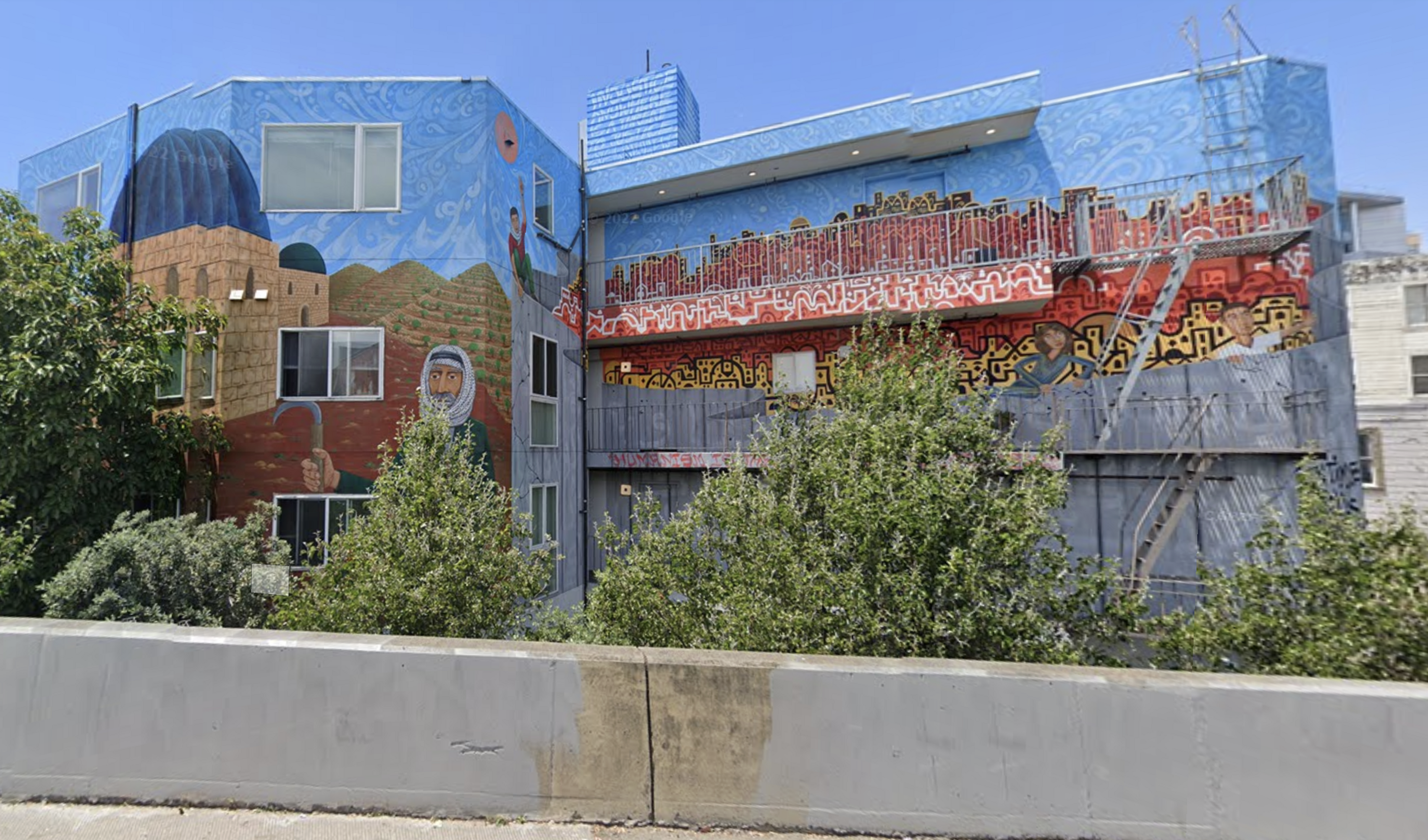If viewed from the front, 25 Elgin Park is a boxy, multiunit dwelling near where SoMa meets the Mission, the kind of 1960s building most people don’t think twice about when they pass it. Seen from the other side, though, its highly visible facade—or facades, really—are taken up by an enormous mural that overlooks the Central Freeway overpass where it touches down at the busy intersection of Market Street and Octavia Boulevard.
Painted in 2018 by well-known San Francisco artist Chris Gazaleh with assistance from Eli Lippert (opens in new tab), the 3,000-square-foot “Humanity Is the Key” depicts robed Palestinians working the fields and plucking citrus from a tree, beneath a swirling blue sky.
Late last week, an observer who lives across the freeway from 25 Elgin Park noticed an individual on the roof, painting over it part of it. Although it seemed like it could potentially be an act of vandalism—anyone who recalls the fnnch honey bear controversy of 2021 (opens in new tab) knows how high street-art tensions can run—the painter turned out to be Gazaleh himself. With the building owner’s permission, he chose to add a vertically oriented Palestinian flag to the crown of his 5-year-old mural.
“I’ve been wanting to do it for some time,” Gazaleh told The Standard, adding that the mural represents Palestinian resistance and culture, subjects that many Americans prefer not to discuss.
“They don’t want to talk about it, but it’s very connected to U.S. global policy,” Gazaleh said. “We’re in a city that has a history of social movements—and this is what muralism, to me, represents.”

Ron Dudum, the owner of 25 Elgin Park and a Palestinian American author who once ran for a seat on the Board of Supervisors (opens in new tab), confirmed that he gave Gazaleh the go-ahead.
Further, he and Gazaleh’s mother grew up together.
“They’ve been very close since they were babies,” Gazaleh said. “My mom spent time at his house, and their parents were close when they came from the old country.”
When Dudum posted on Facebook that he was looking for an artist to paint a mural on his building, he didn’t know his childhood friend’s son had become an accomplished artist. One of Gazaleh’s aunts put them in touch.
“He told me what he wanted: an aesthetic of Islamic geometry, Andalusian type-stuff,” Gazaleh said. “But I got to paint a political mural and show some imagery that will make people question it. Like, ‘What is that wall? What is that supposed to represent?’”
The addition of the red, white, green and black Palestinian flag comes a few weeks after the government of Israel banned its display in public (opens in new tab). That had long been an unofficial policy throughout the West Bank, Gazaleh said, but now it’s a crime punishable by a fine or jail time.
Gazaleh is no stranger to political art, having painted a defiant message of Palestinian identity (“Sanaoud”/”We Will Return”) in 2021 in partnership with the Palestinian Youth Organization and Jewish Voice for Peace. His work has also graced the walls of several of chef Reem Assil’s restaurants, including “Seeds of Love” outside her bakery on 25th and Mission streets.
